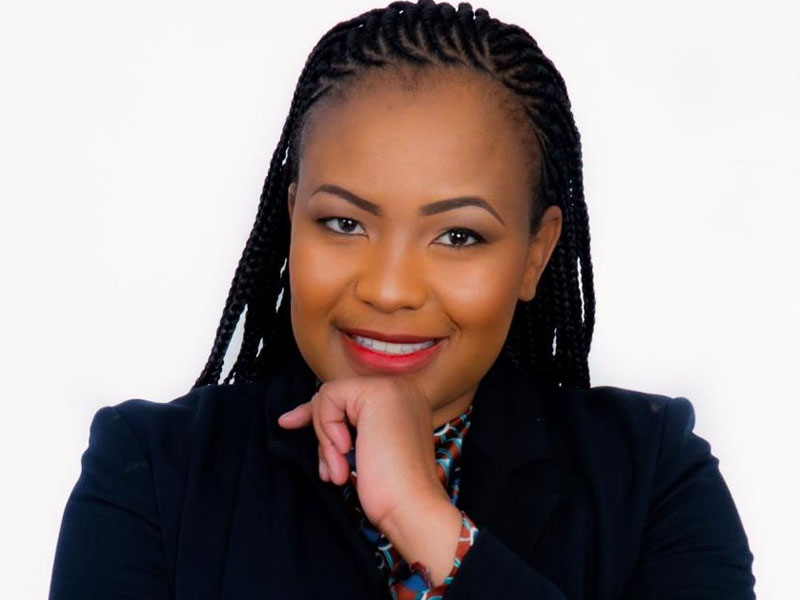Today, February 11th, the world marks the International Day of Women and Girls in Science, against the backdrop of growing climate change concerns and health crises. This, together with the growing role of and demand for technology and digitalisation makes the demand for more hands-on the job more evident than ever before.
“Individuals with advanced skills in science, technology, engineering and mathematics (STEM) are crucial to pushing us to new frontiers as well as tackle urgent challenges. However, the potential of one group has been consistently under-harnessed in this regard: women,” observes World Bank’s Ekua Nuama Bentil, Ruth Charo, Kristin Seljeflot, Dharini Natarajan and Gang .I. Kim in their article titled: “Nurturing Africa’s next generation of female scientists”.
The World Bank’s specialists go on to say that despite the soaring demand for more participants in science, only 30% of science professionals in sub-Saharan Africa are women.
“Research has shown several factors contributing to the underrepresentation of women in STEM – negative stereotypes about girls’ and women’s capability in STEM fields, discrimination against women in the classroom and workplace and traditional gender roles that place the burden of domestic responsibilities disproportionately on the shoulders of women, leaving them less time to work in labs, attend conferences and build networks. Removing these barriers is an essential step towards closing the gender gap and giving women an equal chance at succeeding in STEM,” asserts the quintet.
Against this background, Coca-Cola Beverages Africa, the 8th largest Coca-Cola bottling partner in the world by revenue, and the largest on the African continent is making efforts to leverage its significant 15-country presence on Africa to contribute towards efforts to promote the advancement of women in the sciences.
“Because women are integral to our continent’s shared success, we seek to empower women and girls throughout our markets on the continent,” CCBA’s General Manager of Voltic (GH) Ltd, Flora Jika, explains why this effort is important for the bottler.
Voltic (GH) Limited is a CCBA subsidiary in Ghana.
“Our aim is to create greater shared opportunity for the business and the communities we serve across the value-chain. Opportunity is more than just money, it’s about a better future for people and their communities everywhere on the African continent,” Jika, who herself is an engineer by training adds.

In Ghana, Voltic (GH) Limited has partnered with the Girls Excellence Movement (GEM) to increase impact in the lives of women and children in the communities where it operates. GEM is a team of dynamic Ghanaian, Nigerian, Tanzanian, American and British young professional volunteers who devote their skills, time and other resources to delivering carefully curated capacity-building programmes for girls.
GEM’s vision is to inspire, educate, mentor, and inform girls to help them become change leaders. It develops girls into excellent, independent, confident, well-informed and fearless women who are able and willing to take on leadership in all spheres of life, particularly careers in the STEM fields.
Under the partnership, GEM and Voltic organised their first Inspiration-On-Wheels outreach to Comboni Technical Vocational Institute (COMBOTECH) at Sogakope in the Volta Region of Ghana in 2022.
Discussions during the session covered various topics, including menstrual health and their rights online, STEM subjects and careers, sexual assault awareness and how to effectively engage with the team of mentors. The girls were also given free sanitary pads and mathematical sets.
Voltic has also partnered with the non-profit organisation Girls in Science and Technology (GIST).
GIST’s mission aligns with Voltic’s passion for women and youth empowerment, providing them with the mentorship and coaching they need for a successful and impactful STEM career, and exposing them to opportunities in the STEM industry.
Voltic supports GIST with internship opportunities for female STEM students who fit in the company’s operations. Voltic also partners with GIST to organise empowerment campaign programmes for girls in secondary and tertiary institutions in Ghana.
In 2022, GIST launched the GIST-UMaT Chapter in Takoradi. The aim was to promote the participation of young females in STEM, to increase their interest in the career opportunities available to them. This chapter seeks to create a community where the girls have blueprint role models to look up to. It will also expose them to internship opportunities to give them the head start they need for a successful STEM career.
Referring to the successes of CCBA’s women empowerment programmes, Jika said: “By investing in women’s economic empowerment, we have created shared value in hopes of a better-shared future – enabling improved livelihoods for women, their families and their communities, while inclusively expanding our business.
“Our aim is to boost income, provide decent earning potential and improve skills and business knowledge for women, resulting in them accessing other opportunities.” About Coca-Cola Beverages Africa
CCBA is the 8th largest Coca-Cola bottling partner in the world by revenue, and the largest on the African continent. It accounts for over 40% of all Coca-Cola products sold in Africa by volume. With over 17,000 employees in Africa, CCBA services more than 600,000 customers with a host of international and local brands. The group was formed in July 2016 after the successful combination of the southern and east Africa bottling operations of the non-alcoholic ready-to-drink beverages businesses of The Coca-Cola Company, SABMiller plc and Gutsche Family Investments. CCBA shareholders are currently: The Coca-Cola Company 66.5% and Gutsche Family Investments 33.5%. CCBA operates in 15 countries, including its six key markets of South Africa, Kenya, Ethiopia, Uganda, Mozambique and Namibia, as well as Tanzania, Botswana, Ghana, Zambia, the islands of Comoros and Mayotte, Eswatini and Lesotho, and now also Malawi.
